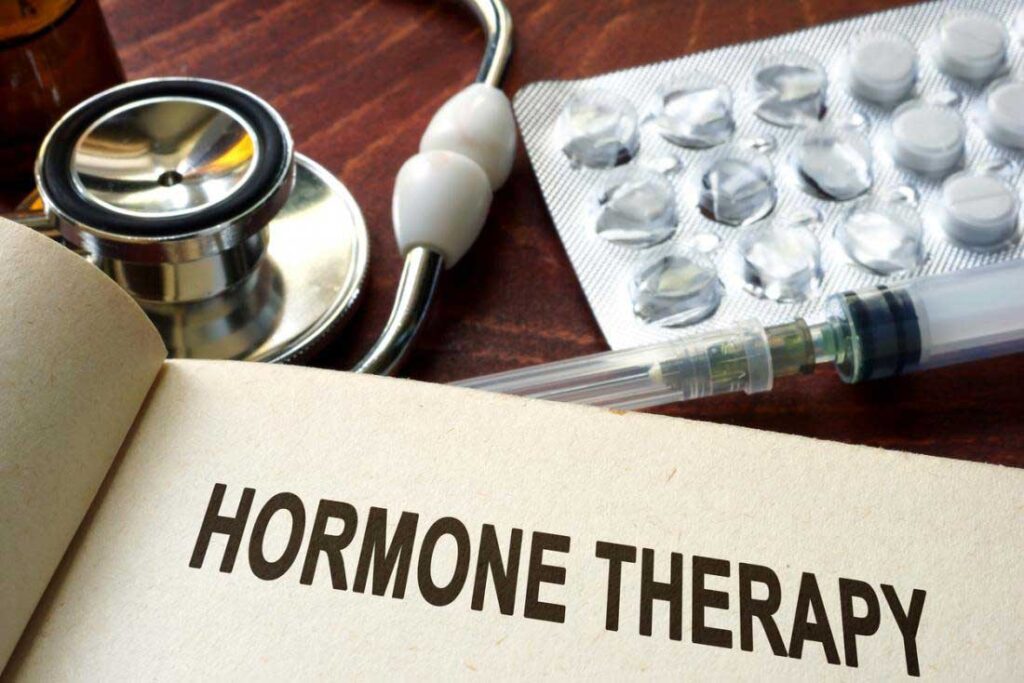Hormone therapy is a medical treatment used for various purposes, including gender transition, managing certain medical conditions, and more. While it can be highly beneficial for many individuals, it’s not suitable for everyone. In this informative guide, we’ll explore the considerations and circumstances under which individuals should avoid hormone therapy.
Understanding Hormone Therapy
Hormone therapy, also known as hormone replacement therapy (HRT), involves the administration of hormones to address specific medical needs. It can involve the use of hormones like estrogen, progesterone, or testosterone to achieve desired outcomes, such as managing the symptoms of menopause or facilitating gender transition.

When Hormone Therapy May Be Inadvisable
Hormone therapy may not be recommended or advisable in several situations, including:
Certain Medical Conditions: Individuals with specific medical conditions, such as certain types of cancer, severe liver disease, or clotting disorders, may be advised against hormone therapy. It’s essential to consult with a healthcare provider to determine the safety of hormone therapy in the presence of any pre-existing conditions.
Current Pregnancy: Hormone therapy is typically not advised during pregnancy, as it can potentially affect fetal development. Pregnant individuals should consult their healthcare provider for alternative treatment options.
Uncontrolled High Blood Pressure: Uncontrolled hypertension can increase the risk of cardiovascular complications. Individuals with uncontrolled high blood pressure should work with their healthcare provider to manage their blood pressure before considering hormone therapy.
Personal or Family History of Blood Clots: Hormone therapy, especially with estrogen, can increase the risk of blood clots. Individuals with a personal or family history of blood clots may need to explore alternative treatments or undergo additional assessments to determine the safety of hormone therapy.

Smoking and Age: Smoking, especially in combination with advancing age, can increase the risk of cardiovascular complications during hormone therapy. Healthcare providers may consider these factors when assessing the suitability of hormone therapy.
Psychological Readiness: In the context of gender-affirming hormone therapy, it’s crucial for individuals to be psychologically prepared for the emotional and psychological changes that can accompany the treatment. Gender-affirming care often involves thorough evaluations and counselling to ensure readiness.
Individualized Assessments
It’s important to emphasise that the decision to pursue or avoid hormone therapy should always be made on an individual basis. Healthcare providers play a critical role in conducting thorough assessments, considering medical history, and discussing the potential risks and benefits with their patients.
Alternative Treatment Options
In cases where hormone therapy may not be suitable, there are often alternative treatment options available. These can include other medications, lifestyle changes, or surgical interventions, depending on the specific medical condition or need.
Hormone therapy can be a highly effective medical treatment for various purposes, but it’s not suitable for everyone. Individuals should consult with their healthcare provider to assess their suitability for hormone therapy based on their medical history, current health status, and individual needs. Avoiding hormone therapy when it’s inadvisable is crucial for ensuring the safety and well-being of patients. Always seek personalized medical advice and guidance to make informed decisions about your healthcare journey.
